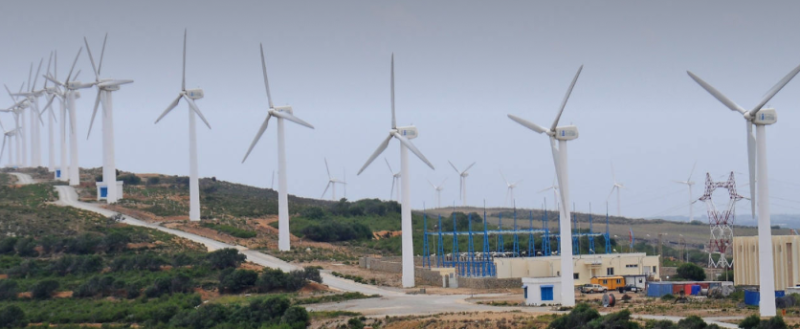

Today, the UN Joint SDG Fund announces a historic expansion of its portfolio to five new markets across the globe with US $54.5 million in additional investments to rescue the Sustainable Development Goals.
Selected from a global pool of submissions from over 100 countries, the proposals submitted by Kenya, Madagascar, North Macedonia, Suriname, and Zimbabwe emerged as the strongest, most impactful, and investment-ready to take public.
The investments constitute an ambitious and concerted response by the UN to the challenges of our generation, from health in a world still plagued by the COVID-19 pandemic to youth empowerment to climate change. Under the leadership of UN Resident Coordinators, implementation of these programmes will fuel the UN footprint in the five nations, ushering in a new generation of collaborative action across the UN, Governments, civil society, and private sector investors.
Described by Hiro Mizuno, the UN Special Envoy on Innovative Finance and Sustainable Investments, “The Fund is in a position to bridge the gap in giving and impact investing. It offers a sustainable investment model by leveraging the power of markets to accelerate businesses, empower communities, and provide a clear path to self-sufficiency.”
This announcement comes less than one year after the Fund launched its first investment of US $41 million in four transformative programmes in Fiji, Indonesia, Malawi, and Uruguay. In 2021, a US $17.9 million programme in Papua New Guinea was added, and with the addition of these five new programmes, the Joint SDG Fund’s Catalytic Investment portfolio will grow to US $114 million. The portfolio is expected to leverage US $5 billion toward the SDGs across the 10 programmatic countries.
The investments include a platform that encourages healthy sexual and reproductive habits, and HIV prevention in Kenya through the issuance of a development impact bond. The bond will generate resources to provide long-term financial support for girls to access sexual and reproductive healthcare. Madagascar will use a variety of financial instruments, including the establishment of a sovereign fund to finance renewable energy projects and expand people’s access to affordable, sustainable energy.
In partnership with development banks and local financial institutions, North Macedonia’s newly created Green Financing Facility will offer financing solutions to accelerate the transition to renewable and efficient energy for underserved households and businesses. Suriname will implement several solutions, including an innovative guarantee facility to ease access to credit, a business incubator, and a farmer-owned cooperative to develop a sustainable and resilient value chain for the country’s pineapple industry. Whereas Zimbabwe is set to launch, through an ambitious public-private joint initiative with a focus on empowering women and youth participation, a renewable energy fund to initiate the development of the country’s renewable energy system/infrastructure.
The Joint SDG Fund is committed to working with our partners and donors to mobilize further additional resources to finance successful proposals submitted by Barbados, Ghana, and Rwanda.
Although the Catalytic Investment portfolio has been in place for less than a year, it has already achieved meaningful results. In Indonesia, the Joint SDG Fund supported the US $584 million launch of the first sovereign SDG bond in South-East Asia, and the creation of the Indonesia Impact Fund in partnership with Mandiri Capital. The Malawi BUILD fund is currently fully operational and is expected to make its first investments in small businesses in the agricultural sector during the first months of 2022. Fiji’s programme has provided support to sustainable businesses for the country’s vital marine environment, including concessional financing toward a marine conservation company and a pipeline to provide service to waste management and organic fertilizers.
With sincere appreciation for the contributions from the European Union and Governments of Denmark, Germany, Ireland, Luxembourg, Monaco, Kingdom of Netherlands, Norway, Portugal, Republic of Korea, Spain, Sweden, Swiss Agency for Development and Cooperation and our private sector funding partners, this milestone marks a transformative movement towards achieving the SDGs by 2030.
Recognizing the immense support in the implementation of the UN joint programme initiatives, the Fund is exceedingly grateful for the level of cooperation from, United Nations Capital Development Fund, United Nations Development Programme, United Nations Children's Fund, United Nations Population Fund, International Labour Organization, World Food Programme, Food and Agriculture Organization, International Organization for Migration, United Nations Economic and Social Commission for Asia and the Pacific, International Fund for Agricultural Development, UNAIDS, United Nations Economic Commission for Europe, United Nations Environment Programme, United Nations Educational, Scientific and Cultural Organization, United Nations High Commissioner for Refugees, United Nations Industrial Development Organization, UN Women, World Health Organization and World Meteorological Organization.
About: The UN Joint SDG Fund is a multi-partner trust fund established by the United Nations General Assembly. The Fund supports UN member states by de-risking investments that drive financing solutions to accelerate achievement of the Sustainable Development Goals (SDGs). Our goal is to disburse US$ 1 billion in grants annually in the race to 2030. All programmes share one critical element: their ability to leverage multi-million-dollar grants from the Joint SDG Fund into billions for sustainable development. Learn more: https://www.jointsdgfund.org/
Originally published on www.jointsdgfund.org